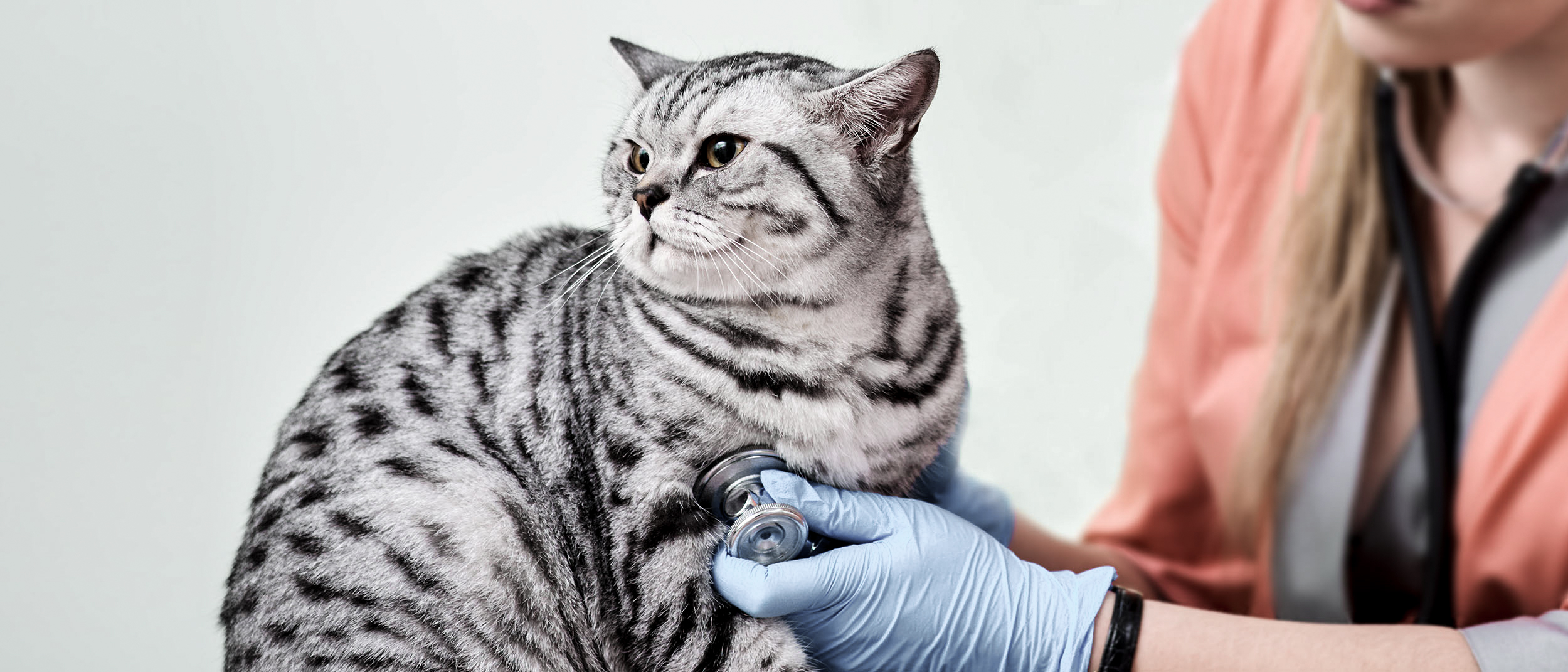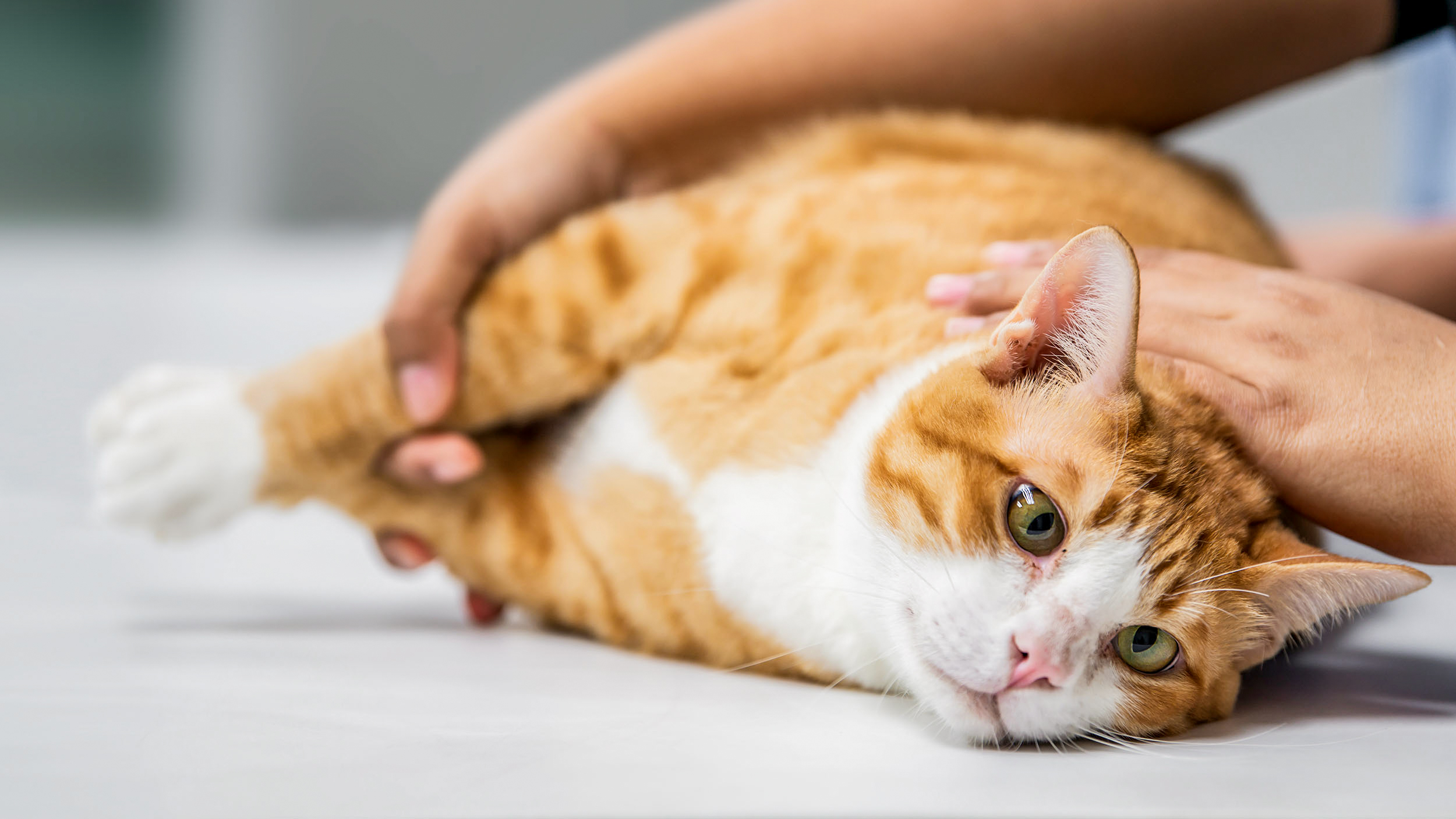Health risks of overweight and obese cats

Obesity in cats is an increasing issue, just as it is in the human population. It can have serious, lifelong impact on a cat, affecting their health, quality of life and bodily functions.
Are some cats predisposed to obesity?
There are certain factors which may make your cat more likely to struggle with weight gain and obesity:
- If they are a short-haired European type cat, rather than a pure breed
- If they are between five and 10 years old, when their activity begins to decline
- If they are fed very frequently and more than the recommended portion
- If they are nervous, depressed or have suffered with mental or emotional strain
- If they’re male
If your cat has been spayed or neutered, it’s also more likely to gain weight; the operation reduces your cat’s energy requirement by just under a third, but their appetite can go up between 18% and 26%.
Why does being overweight or obese affect my cat?
When your cat is overweight or obese, its body begins to store the food it consumes as fat, rather than using it up, because the energy it's expending is less than the energy it's taking in. This fat then starts to affect bodily functions as it infiltrates specific organs – such as the liver – or ‘coats’ others, like arteries. The extra weight puts pressure on your cat’s internal system and joints, leading to a series of health risks.

What risks are there if my cat is overweight or obese?
In general, obesity can reduce your cat’s quality and life expectancy; it’s harder for it to play and move around, and surgical procedures or check-ups become more difficult.
Diabetes
Obese cats are much more at risk of diabetes – 80% to 90% of obese cats have this condition, which requires daily insulin injections. Often, the diabetes can be reversed once any extra weight is lost, as the accumulated fat which is directly responsible for a failure to regulate glucose is no longer present.
Compromised immune system
Your cat’s immune system can become compromised when they’re obese, making them more prone to infection. This includes urinary infection and ‘stones’ which occur as overweight cats are less active, tend to drink less water and urinate less often than healthy cats.
Liver failure
One serious and potentially fatal risk with obese cats is liver failure. When the cat’s body believes it is undernourished – for example, if a constant food supply stops – fat is moved from stores into the liver to be used as energy. However, a cat’s body is unable to manage that process effectively which leads to the liver functioning poorly, sometimes eventually leading to fatal hepatic insufficiency and liver failure.
Grooming and mental health
With extra weight, cats find it difficult to groom themselves which can lead to skin problems. Similarly, extra weight puts pressure on your cat’s joints and they can suffer from arthritis. Cardiovascular and respiratory systems are also affected, leading to breathlessness and heart problems.
An overweight or obese cat can also end up struggling with their mental health; rather than running away or hiding when they sense danger, overweight cats aren’t able to react quickly and so can’t follow their instincts, which can cause them distress.
With the right diet, exercise and behaviours, you’ll be able to protect your cat from the risks of being overweight or obese. To start, speak to your vet who will be able to advise you on the best course of action.
Related Articles
Find a vet
If you have any concerns about your cat’s health, consult a vet for professional advice.
Like & share this page